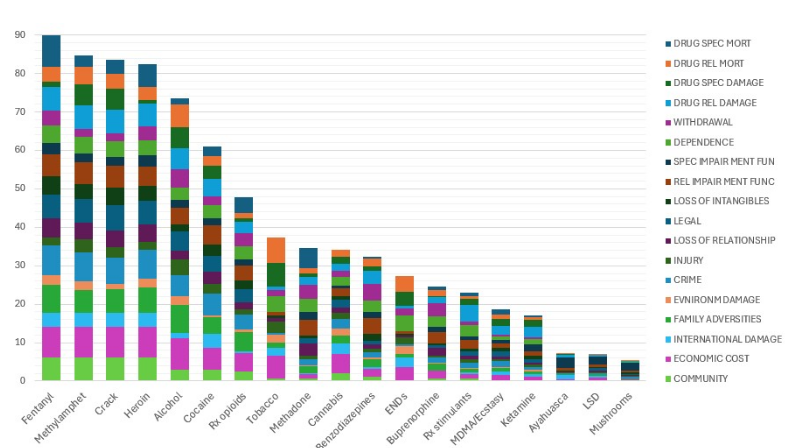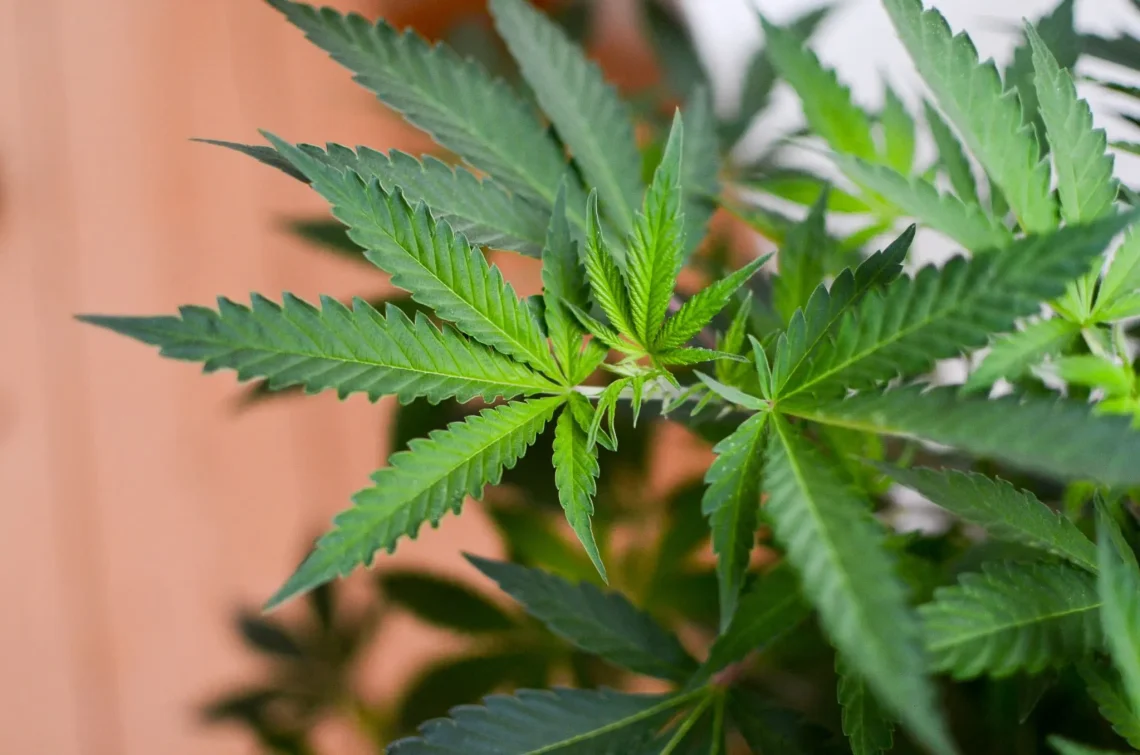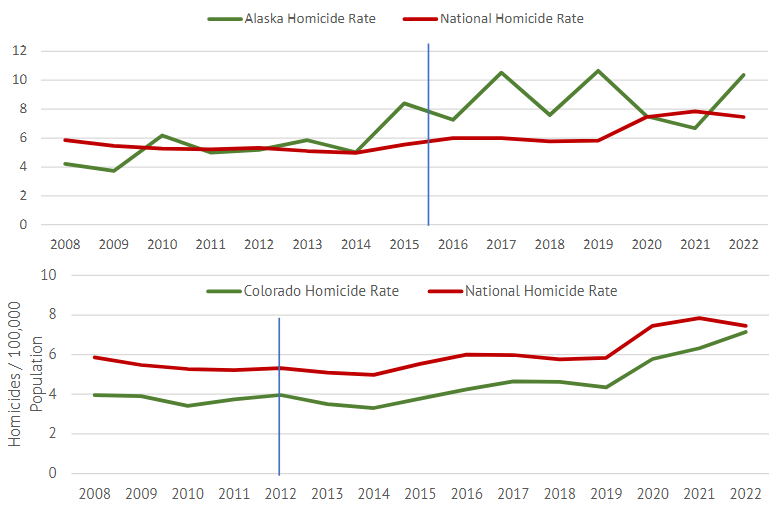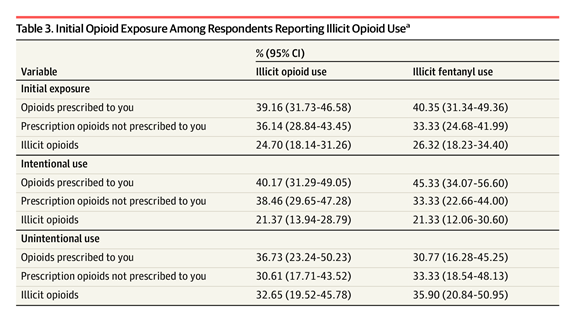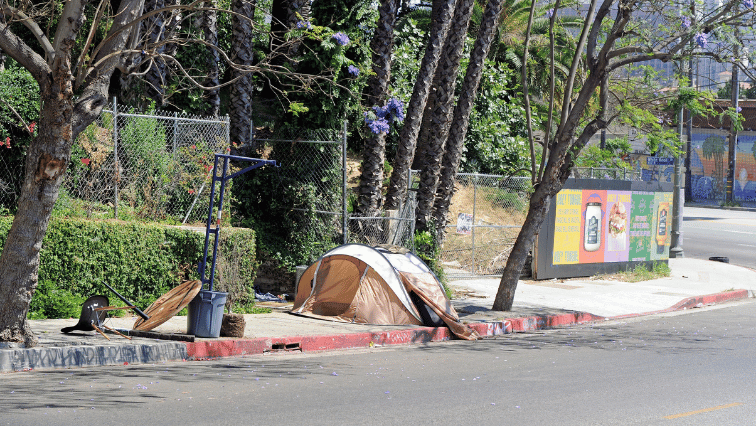These findings add to the growing international literature highlighting how drug policy contradicts expert assessments of drug harms across nations. To reduce these harms, public health strategies informed by evidence and expert input should be prioritized over punitive approaches.
Read More
-
-
With over 55 million cannabis fans in America, 2025 was a year of big wins and stinging losses. From headway in the hash world and LA’s indoor farms to High Times’ resurgence and landmark findings in the scientific world, the ganja news came like a firehose in 2025, and here’s a distillation of the top items.
-
Over the past several months, the Trump administration has ramped up the War on Drugs by attacking boats from Venezuela that were allegedly bringing fentanyl to the United States. Much commentary has questioned the legality, humanity, and effectiveness of these measures and also expressed bewilderment at the relation between these actions and President Trump’s pardon of Juan Orlando Hernandez, the former president of Honduras, who was serving a 45-year sentence for cocaine trafficking.
Yet most discussion misses the fundamental point: the War on Drugs is, and always has been, a terrible policy.
Read More -
As 2025 comes to a close, the cannabis world is reflecting on the sometimes dizzying series of political, legal and cultural shifts that took place this year—and looking ahead to further developments that advocates and industry stakeholders will be navigating in the new year.
Read More -
SOS and methadone were associated with improvements in health outcomes, including reduced opioid toxicities and health-care use, in the year after treatment initiation. The findings suggest SOS programmes play an important, complementary role to traditional opioid agonist treatment in expanding the options available to support people who use drugs.
-
This review examines Berenson’s claims in light of the current literature in epidemiology, public health, and economics by reviewing his research summary and analyzing government data measuring marijuana use, mental illness, and violence. Despite Berenson’s claims, much of the literature he cites concludes that marijuana is effective in treating many conditions, including chronic pain—one of many scientific findings Berenson chooses to omit in his book.
-
Legal market capture of cannabis expenditures in Canada following federal cannabis legalization
Highlights•Legal market capture of cannabis 5 years post-legalization in Canada is ∼78 %.
•Dried flower accounted for approximately 60 % of all legal cannabis expenditures.
•Higher legal market capture for drinks, vapes, and capsules; lower for concentrates.
•Overall, evidence of substantial transition in expenditures from illegal to legal cannabis market.
Read more in the International Journal of Drug Policy
-
The opioid crisis represents one of the greatest public health challenges of our time, yet estimates of illicit opioid use are rare and typically available only years after data collection, limiting our ability to monitor trends in prevalence. This survey study estimated near real-time rates of illicit opioid use.
These findings suggest that illicit opioid use and, in particular, IMF use is more prevalent than previously estimated. Almost 11% of the population aged 18 years and older reported using illicit opioids within the past 12 months, including 7.5% of the population aged 18 years and older using IMF.
Research critical of prior survey evidence on illicit substance use estimated that the true rate of chronic heroin use was more than 16 times the rate reported in the NSDUH. Our estimate of IMF use is 25 times as large as the 2022 NSDUH rate for those aged 18 years or older (7.5% vs 0.3%). Assuming that illicit opioid use has increased, these differences are consistent with prior estimates of NSDUH undercounts of illicit opioid use.
Read more: JAMA Health Forum. 2025;6(5):e250809. doi:10.1001/jamahealthforum.2025.0809
-
Such policies reflect public fears about substance use and issues associated with people living without shelter, but they stem from flawed narratives that people who use drugs and are unhoused are dangerous and the assumption that harsher penalties for substance use and homelessness improve public safety. Evidence shows otherwise. These narratives also fail to account for this population’s extensive health and social needs. Consequently, these laws will expose more vulnerable individuals to the harms of incarceration, fail to improve public safety, and exacerbate the homelessness crisis. To address drug use and homelessness, policy makers and public health experts should prioritize evidence-based alternatives to criminalization that improve public health and safety.
Read more at Health Affairs

